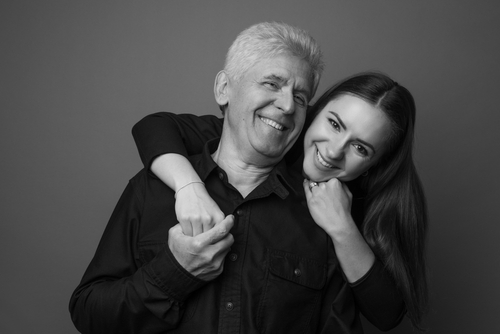
PROTECTING YOUR CHILDREN, NO MATTER WHAT THEIR AGE.
Occasionally I have seen otherwise well meaning parents, when going through dating dilemmas of their own, due to divorce or other crises, imposing on their own children, to provide advice on their dating lives. However well intentioned the parents, I try to remind them as gently as possible that including their children in intimate matters, even if the children seem interested, is not helpful for the kids. Sometimes I am told that the children ask about their dating life and like to feel needed and helpful, that it helps their self esteem, but parents, please confine your intimate conversations to people your own age, or even a therapist, but NOT your adult children. They deserve to see you as a role model rather than a struggling vulnerable dating person in need of advice and rescue.
In healthy parent-adult child relationships, it's generally recommended for parents to
avoid relying on their adult children for emotional support or advice, especially on intimate relationship matters.
Here's why and what's considered healthier:
- Parentification: When a parent consistently looks to their child for emotional support and advice, it can be a form of parentification. This role reversal can be damaging to the child, who is forced to assume adult responsibilities prematurely and may miss out on aspects of a healthy childhood and development.
- Long-term effects of parentification: Parentification can have long-term negative effects on the child's emotional and psychological well-being, potentially causing difficulties with boundary setting, forming healthy relationships, and developing a sense of self, according to Newport Academy.
- Independence and mutual respect: Healthy parent-adult child relationships thrive on mutual respect and the recognition of the adult child's independence. Seeking relationship advice from a daughter can blur these boundaries and potentially make her feel responsible for her father's emotional well-being.
- Alternatives for seeking support: Instead of relying on a daughter for relationship advice, a father can seek support from a therapist, trusted friends, or other adults who can provide guidance and support without burdening the daughter.
Instead of seeking advice on his love life, a father can support his adult daughter by:
- Listening to her without judgment: Creating a safe space for her to share her thoughts and feelings without fear of criticism or lectures.
- Offering advice only when asked: Respecting her autonomy and trusting her ability to make her own decisions.
- Building a supportive friendship: Spending quality time, celebrating her achievements, and showing genuine interest in her life.
- Setting and respecting boundaries: This promotes a healthy relationship where both individuals feel secure and respected.
- Continuing to be a role model: Demonstrating healthy relationships and personal growth can inspire and guide a daughter more effectively than seeking advice from her.
Ultimately, the goal is to cultivate a relationship where both the father and daughter feel respected, loved, and have the freedom to navigate their own lives and relationships with healthy boundaries in place.
